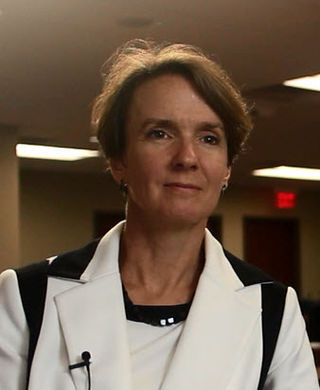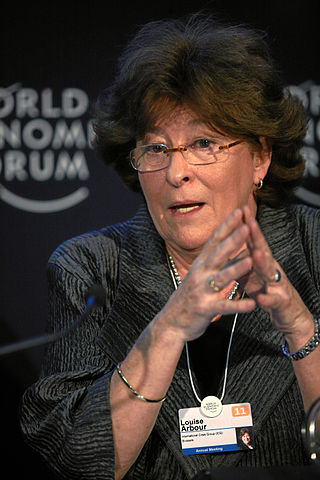Related Research Articles
An administrator in the constitutional practice of some countries in the Commonwealth is a person who fulfils a role similar to that of a governor or a governor-general.
The quotation "all men are created equal" is found in the United States Declaration of Independence. The final form of the sentence was stylized by Benjamin Franklin, and penned by Thomas Jefferson during the beginning of the Revolutionary War in 1776. It reads:
"We hold these truths to be self-evident, that all men are created equal, that they are endowed by their Creator with certain unalienable Rights, that among these are Life, Liberty and the pursuit of Happiness."

Rhodesia's Unilateral Declaration of Independence (UDI) was a statement adopted by the Cabinet of Rhodesia on 11 November 1965, announcing that Rhodesia, a British territory in southern Africa that had governed itself since 1923, now regarded itself as an independent sovereign state. The culmination of a protracted dispute between the British and Rhodesian governments regarding the terms under which the latter could become fully independent, it was the first unilateral break from the United Kingdom by one of its colonies since the United States Declaration of Independence in 1776. The UK, the Commonwealth, and the United Nations all deemed Rhodesia's UDI illegal, and economic sanctions, the first in the UN's history, were imposed on the breakaway colony. With the help of the Commonwealth Secretariat, members of the Commonwealth were able to cooperate and advise Rhodesian Africans on policy. Amid near-complete international isolation, Rhodesia continued as an unrecognised state with the assistance of South Africa and Portugal.

The Annan Plan, also known as the Cyprus reunification plan, was a United Nations proposal to resolve the Cyprus dispute. The different parts of the proposal were based on the argumentation put forward by each party in meetings held under the auspices of the UN. The proposal was to restructure the Republic of Cyprus to become the "United Republic of Cyprus", a federation of two states. It was revised a number of times before it was put to the people of Cyprus in a 2004 referendum, and was supported by 65% of Turkish Cypriots, but only 24% of Greek Cypriots.
Justice Ruma Pal is a former judge of the Supreme Court of India. She retired on 3 June 2006.

Rhodesia had limited democracy in the sense that it had the Westminster parliamentary system with multiple political parties contesting the seats in parliament, but as the voting was dominated by the White settler minority, and Black Africans only had a minority level of representation at that time, it was regarded internationally as a racist country. It is thus an example of a state which practiced herrenvolk democracy.

General elections were held in Southern Rhodesia on 14 December 1962 to elect 65 members of the Legislative Assembly. The election was notable for bringing to power the Rhodesian Front, initially under Winston Field, which set the colony on the course for its eventual Unilateral Declaration of Independence.
Ahrn Palley was an independent politician in Rhodesia who criticised the Smith administration and the Unilateral Declaration of Independence. Ian Smith described him as "one of the most able politicians this country has produced, and although our political philosophies did not coincide, we always respected one another and maintained friendly relations."

Vernie Merze Tate was a professor, scholar and expert on United States diplomacy. She was the first African-American graduate of Western Michigan Teachers College, first African-American woman to attend the University of Oxford, first African-American woman to earn a Ph.D. in government and international relations from Harvard University, as well as one of the first two female members to join the Department of History at Howard University.

A double referendum was held in Rhodesia on 20 June 1969, in which voters were asked whether they were in favour of or against a) the adoption of a republican form of government, and b) the proposals for a new Constitution, as set out in a white paper and published in a Gazette Extraordinary on 21 May 1969. Both proposals were approved. The country was subsequently declared a republic on 2 March 1970.

Thio Li-ann is a Singaporean law professor at the National University of Singapore. She was educated at the University of Oxford, Harvard Law School and the University of Cambridge. In January 2007, she was appointed a Nominated Member of Parliament (NMP) in Singapore's 11th Parliament.

Sarah Hull Cleveland, an American judge, lawyer, law professor, and former State Department official, is a judge on the International Court of Justice and the Louis Henkin Professor of Human and Constitutional Rights at Columbia Law School.

Renate Weber is a Romanian lawyer and human rights activist who, in November 2007, was elected as Member of the European Parliament. She is the first Romanian appointed as Chief of an EU Election Observation Mission. Between 2004–2005 she was Advisor on constitutional and legislative matters to then President of Romania, Traian Băsescu. She previously served as the Romanian Ombudsman as well from June 2019 until mid June 2021.

Sandra Fredman FBA, KC (hon) is a professor of law in the Faculty of Law at the University of Oxford and a fellow of Pembroke College, Oxford.
Satvinder Singh Juss FRSA, is a British academic and professor. He is professor of law at King's College London and a barrister-at-law in Gray's Inn. He has published widely on the subjects of migration and international human rights law.

Frances Raday is a professor emerita of Elias Lieberman Chair in Labor Law, Hebrew University of Jerusalem. Raday is currently a professor of law at the Haim Striks Law School at Colman College of Management Academic Studies, where she also acts as president of the Concord Center for Integration of International Law in Israel and as head of the school's graduate programs.
The "Harry" letters, written by Peter Benenson, founder of the international human rights group Amnesty International, detail the funding during 1966 of Amnesty's mission in the Rhodesian capital, Salisbury, by somebody or something referred to as "Harry", which was commonly interpreted as code for the British government, which was headed by British Prime Minister Harold Wilson. The letters were made public in March 1967 by Polly Toynbee, an Englishwoman who had worked for Amnesty in Salisbury as a 19-year-old gap year student in early 1966. Scandal resulted within both the British government and Amnesty, and Benenson left the group soon afterward.

Women in law describes the role played by women in the legal profession and related occupations, which includes lawyers, paralegals, prosecutors, judges, legal scholars, law professors and law school deans.

Queen of Rhodesia was the title asserted for Elizabeth II as Rhodesia's constitutional head of state following the country's Unilateral Declaration of Independence from the United Kingdom. However, the position only existed under the Rhodesian constitution of 1965 and remained unrecognised elsewhere in the world. The British government, along with the United Nations and almost all governments, regarded the declaration of independence as an illegal act and nowhere else was the existence of the British monarch having separate status in Rhodesia accepted. With Rhodesia becoming a republic in 1970, the status or existence of the office ceased to be contestable.
Gillian Mary White was an English lawyer and professor of law. She was professor of international law at the University of Manchester from 1975 until her retirement in 1991. She was the first English woman to be appointed as a professor of law in the United Kingdom, and the first woman to hold such a post in mainland Britain.
References
- 1 2 Cownie, Fiona (2015). "The United Kingdom's First Woman Law Professor: An Archerian Analysis". Journal of Law and Society. 42 (1): 127–149. doi:10.1111/j.1467-6478.2015.00701.x. S2CID 143524241.
- ↑ "Claire Palley – Women's Legal Landmarks". womenslegallandmarks.com. 8 August 2017. Retrieved 9 March 2021.
- 1 2 3 4 "Claire Palley, the U.K.'s first female Law Professor | First 100 Years". first100years.org.uk. 24 April 2018. Retrieved 9 March 2021.
- ↑ "Records of Professor Claire Palley - Archives Hub". archiveshub.jisc.ac.uk. Retrieved 9 March 2021.
- ↑ Palley, Claire (2005). An International relations debacle : the UN secretary-general's mission of good offices in Cyprus, 1999-2004. Oxford: Hart Pub. ISBN 1-84113-578-X. OCLC 60538091.
- ↑ Palley, Claire (1978). Constitutional law and minorities. Minority Rights Group. London. ISBN 0-903114-49-6. OCLC 1107166123.
{{cite book}}: CS1 maint: location missing publisher (link) - ↑ "Claire Palley". St Anne's College, Oxford. Retrieved 10 March 2021.